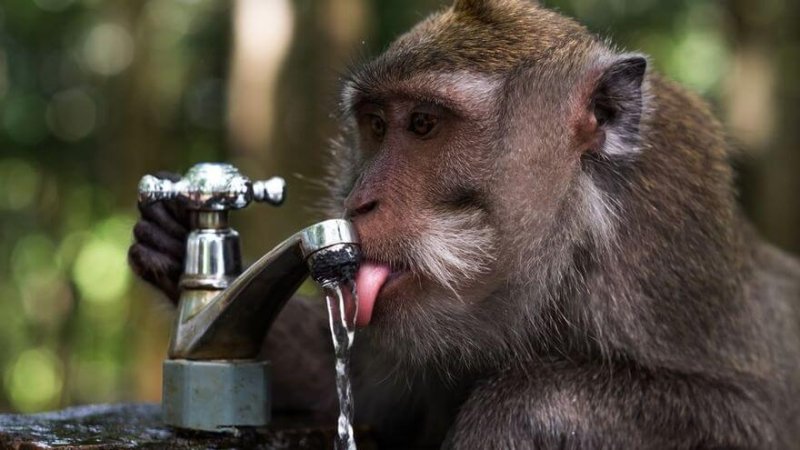Our bodies are constantly losing water: when we sweat, go to the bathroom, even when we breathe. That water needs to be replenished to keep blood volume and other body fluids within normal ranges.
And yet, research published March 5 in the journal Current Biology shows that the human body uses 30% to 50% less water per day than our closest animal cousins. In other words, among primates, humans evolved to be the low-flow model.
An ancient shift in our body’s ability to conserve water may have enabled our hunter-gatherer ancestors to venture farther from streams and watering holes in search of food, said lead author Herman Pontzer, associate professor of evolutionary anthropology at Duke University.
“Even just being able to go a little bit longer without water would have been a big advantage as early humans started making a living in dry, savannah landscapes,” Pontzer said.
Our nasal passages help conserve water by cooling and condensing the water vapor from exhaled air… Having a nose that sticks out more may have helped early humans retain more moisture with each breath.
“There’s still a mystery to solve, but clearly humans are saving water,” Pontzer said. “Figuring out exactly how we do that is where we go next, and that’s going to be really fun.”































